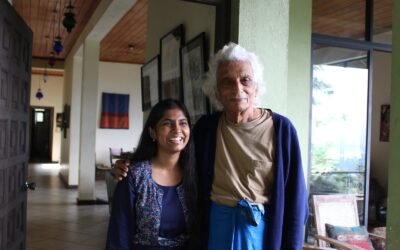Can the National People’s Power Consolidate its Presidential Victory in the Parliamentary Election?
Pradeep Peiris
Three potential scenarios are possible in the upcoming parliamentary election. In the first scenario, the NPP secures a decisive victory, attaining two-thirds of the 225 parliamentary seats. In the second scenario, the NPP wins the election by a narrow margin, a little over 113 seats. In the third scenario, the NPP fails to achieve more than 113 seats in parliament. The first seems improbable, and the second difficult. The third would be disastrous for the NPP.
Securing victory in the upcoming parliamentary election will be a considerable challenge for the NPP. While its recent triumph in the presidential election may enhance its prospects of winning a greater number of seats, it is crucial to recognise that this favourable position does not guarantee sweeping success in the parliamentary election. Of course, in the past, the same party or coalition has often succeeded in parliamentary elections following a presidential win (see Table 1 below). However, with the exception of the presidential victories of the Rajapaksa brothers, the overall percentage of votes garnered in parliamentary elections has not shown a significant increase compared to the votes received in presidential contests.
Table 1: Performance of winning parties at presidential and parliamentary elections*

* In 1994 and 2004, the Parliamentary Election preceded the Presidential Election
The NPP adheres to a distinct ideology and operational framework that differentiates it from catch-all parties like the Sri Lanka Freedom Party (SLFP) and the Sri Lanka Podujana Peramuna (SLPP) whose primary objective is to maximise their number of votes without representing a particular ideology or policy programme. Therefore, it is not logical to extrapolate the outcomes of the elections held in 2010 and 2020 to 2024. Moreover, the dynamics inherent in presidential and parliamentary elections are markedly different. As such, a victory in the presidential election alone is insufficient to ensure success in the parliamentary election.
From Presidential to Parliamentary Election
The high jump, long jump, and pole vault are distinct jumping events, each necessitating specific techniques and adhering to different rules. Similarly, electoral dynamics vary across different types of elections. The rationale and processes involved in making electoral choices during parliamentary and local elections differ fundamentally from those in presidential elections, which encompass the entire country as a single electorate. In presidential elections, the distance between candidates and voters is greater, thereby elevating the significance of national-level propaganda over local mobilisation efforts. Consequently, a comprehensive nationwide campaign, often characterised by various tactics—including misinformation and rumours—becomes vital for success in a presidential race.
For instance, in 2019, Gotabaya Rajapaksa’s campaign effectively persuaded the Sinhalese majority of an imminent terrorist threat to the nation, portraying himself as the sole candidate capable of addressing this fear. Likewise, Anura Kumara Dissanayaka capitalised on widespread frustration with the established corrupt political system, which many perceived as having compromised the country’s economy. The NPP adopted the slogan “system change”, which was the rallying cry of the democratic youth movement that emerged during the 2022 popular uprising (Aragalaya), to bolster its presidential campaign.
While local mobilisation by respective parties can influence voter decisions, national-level campaigning tends to overshadow these local efforts in presidential elections. Thus, it is not unusual for voters to support presidential candidates who may not align with their party or the preferences of local political leadership. The recent presidential election illustrated this phenomenon, as numerous SLPP supporters chose not to vote for Ranil Wickremesinghe, despite their local politicians endorsing his candidacy. Conversely, some SLPP supporters may have voted for Wickremesinghe, regardless of the party leadership’s withdrawal of support to him.
The Party-Voter Nexus
In parliamentary, provincial council, and local council elections, the proximity between candidates and voters tends to increase. While national-level propaganda may promote a range of choices, voters often face challenges in exercising their electoral preferences due to the constraints imposed by various social and political relationships. Recent literature on political parties highlights that parties engage with the electorate through a complex network of social connections, including funeral societies, credit groups, religious organisations, informal caste and family networks, and even networks supporting illegal/criminal activities.
The leadership of each political party relies on key actors within these networks in individual villages to distribute patronage benefits and mobilise votes. These local intermediaries, who serve as brokers, derive significant advantages from this arrangement and therefore strive to satisfy the interests of both the party/politician and the voters. In this system, political parties leverage these middlemen to secure votes, while voters turn to them for access to patronage. However, this relationship cannot be fully understood through a purely utilitarian lens, as patronage also serves as a battleground for various ethnic, religious, class, and caste groups vying for political representation. Outside of urban middle-class constituencies, this mechanism significantly influences the party-voter dynamic.
The effectiveness of mobilising this multi-layered local leadership to garner voter support is generally greater for parliamentary candidates than for presidential candidates. However, following a presidential election victory, if the party commits to providing patronage in clear terms, these local intermediaries may be able to secure additional votes for the party in the subsequent parliamentary election. In this context, not only those who have previously benefited but also individuals seeking future advantages are likely to support the ruling party. This dynamic helps to explain the substantial parliamentary victories experienced under Mahinda Rajapaksa in 2010 and under Gotabaya Rajapaksa in 2020.
Even when a party is unable to offer patronage, local intermediaries can still mobilise voters—albeit less effectively—for parliamentary elections. This phenomenon accounts for the ability of numerous senior politicians to retain their parliamentary seats, despite their party’s defeat at the presidential election. While patronage is fundamental to establishing political loyalty, interpersonal relationships are also vital for sustaining these loyalties beyond the realm of electoral politics.
The Outcome of the Parliamentary Election
Consequently, despite their underwhelming performance in the presidential election, politicians from traditional parties and coalitions such as the Samagi Jana Balawegaya (SJB) are likely to secure their parliamentary seats. In contrast to the NPP candidates who are campaigning primarily based on their party’s popularity, a majority of these traditional politicians leverage networks founded on patronage and sustained through cultural relationships that they have personally developed. As a result, voters who wish to maintain their existing sources of patronage may find it challenging to support the NPP in the parliamentary election, in the same manner that they did on September 21.
The local-level election campaign of the NPP conveys a straightforward message: voters are encouraged to trust the party to transform the political culture of the country and to support candidates who are educated and free from corruption. At the national level, the NPP seeks to emphasise the corruption, mismanagement, and abuse of power by the ruling elites. On the one hand, to compete with the NPP, politicians from traditional parties too have adopted anti-corruption discourse while highlighting their educational credentials where possible. On the other hand, politicians from traditional parties highlight the lack of experience of the NPP candidates, in contrast to their own. Importantly, the campaigns of candidates from traditional parties, such as the SJB, highlight their material contribution to the community, emphasising individual benefits provided to families and neighbourhoods. They also promise future advantages, even in the absence of access to state resources.
The operational strategy of the NPP also markedly differs from that of traditional political parties. The latter typically engage in elections by forming pre- and/or post-election coalitions with other parties or political factions. This strategy enables them to transform a presidential election victory into a substantial parliamentary triumph, by allying with rival politicians to capitalise on the latter’s voter base. Politicians and voters operating within the broader context of patronage politics—constituting the majority of the Sri Lankan electorate—tend to seek affiliation with the political forces that wield control over the state. Since the late 1990s, the defection of opposition politicians to the government has been a common occurrence in Sri Lanka.
In contrast, the NPP is contesting parliamentary elections independently, which precludes it from benefiting from the voter bases of parties or factions that did not support it during the presidential election. Furthermore, the NPP secured the presidential election with the objective of transforming the patronage-based political culture prevalent in the country. In this context, at least at present, even if the NPP desires a broader alliance, neither politicians nor voters from traditional political parties are likely to align themselves with the NPP in anticipation of a sustained influx of state patronage. Consequently, the NPP is unlikely to achieve a decisive parliamentary victory akin to those attained by Mahinda Rajapaksa and Gotabaya Rajapaksa in 2010 and 2020 respectively.
Politics after the Parliamentary Election
The outcome of this election will significantly influence the country’s democratic landscape and may have profound implications for the NPP. In the same way Sri Lankan Marxist leaders once anticipated socialism through the ballot box, there is now a substantial community of liberals who look for a transformative shift in the nation’s democracy with each election cycle. Anura Kumara Dissanayake’s victory is certainly a landmark achievement. However, it will only be regarded as a meaningful historical success if the NPP can secure a clear majority in the parliamentary election.
This article posits that the NPP will only obtain a marginal victory, even if it manages to win the upcoming parliamentary election. To avoid a cohabitation arrangement with an opposition alliance, the NPP will need to forge a pragmatic alliance with one or two small parties. Entering into an alliance with any traditional political party presents a formidable challenge, as it would undermine the fulfilment of electoral promises. It could also upset the current delicate synergy between the old JVP cadres and the new NPP members. Either or both of these actions may prove to be exceedingly costly to the NPP.
It is crucial to temper expectations, as the NPP is likely to constitute one of the weakest governments formed in recent decades. Instead, it is essential to recognise that the NPP’s victory in the presidential election merely signifies a battle won against the old political elite. More battles will need to be fought and won to achieve a comprehensive transformation of the political system, where the sovereignty of the people is fully realised.
Pradeep Peiris (PhD., Colombo) is Senior Lecturer at the Department of Political Science and Public Policy, of the University of Colombo. He is the author of Catch-All Parties and Party-Voter Nexus in Sri Lanka (Springer Nature, Singapore, 2022).
Image source: https://bit.ly/4foBOlA
You May Also Like…
Obeyesekere the Dreamer: Visionary Journeys in Anthropology
Anushka Kahandagamage
I remember vividly one pattern in my youthful dreams repeated time and again, without too much variation, that of...
Gananath Obeyesekere: The Anthropologist and the Historian
John D. Rogers
I first met Gananath at the Annual Conference of the Association for Asian Studies in Washington DC in March 1984,...
The Creation of the Hunter. The Vädda Presence in the Kandyan Kingdom: A Re-Examination. Gananath Obeyesekere. Colombo: Sailfish, 2022.
R. S. Perinbanayagam
Robert Siddharthan Perinbanayagam died on 5 November 2025 in New York City where he lived most of his life. Born in...




